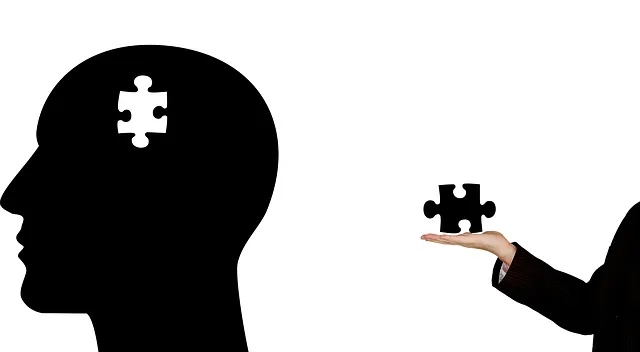Stigma significantly impedes access to mental healthcare, but initiatives like Kaiser Permanente's in Lafayette combat this by offering comprehensive mental health coverage, educational programs, and support systems. Their efforts destigmatize mental illness through public education, workshops on emotional intelligence and conflict resolution, and community engagement. These strategies improve accessibility, foster open dialogues, and break down barriers, ensuring individuals receive the mental health care they need without judgment.
Mental illness stigma reduction is a critical component in enhancing access to mental healthcare. This article explores comprehensive strategies, from Kaiser Permanente’s leading initiatives to community engagement and educational programs, aimed at challenging misconceptions about mental illness. We delve into successful programs, including Kaiser Permanente’s innovative approach in Lafayette, demonstrating that through collaborative efforts, we can significantly reduce stigma and improve mental health care for all.
- Understanding the Impact of Stigma on Mental Health Care Access
- Kaiser Permanente's Approach to Enhancing Mental Health Coverage
- Community Engagement Strategies for Reducing Stigma
- Educational Initiatives: Challenging Misconceptions about Mental Illness
- Success Stories: The Effectiveness of Stigma Reduction Programs
Understanding the Impact of Stigma on Mental Health Care Access

The impact of stigma on mental health care access cannot be overstated, especially in regions like Lafayette where Kaiser Permanente’s mental health coverage plays a pivotal role. Stigma often acts as a significant barrier, deterring individuals from seeking necessary support and treatment for their mental health issues. This reluctance to access care can lead to prolonged suffering, exacerbating existing conditions and potentially resulting in more severe outcomes.
Efforts aimed at reducing stigma are crucial for fostering an environment that promotes mental wellness. Initiatives such as Mental Wellness Coaching Programs and the development of Conflict Resolution Techniques can empower individuals to manage their emotional well-being effectively. By integrating these programs into communities, we can encourage open conversations about mental health, challenge societal norms, and ultimately improve access to care, ensuring that those in need receive the support they deserve under coverage like Kaiser Permanente’s mental health services in Lafayette.
Kaiser Permanente's Approach to Enhancing Mental Health Coverage

Kaiser Permanente, a healthcare organization with a significant presence in Lafayette and beyond, has been at the forefront of mental health advocacy. Their approach to enhancing mental health coverage involves a multi-faceted strategy that includes comprehensive insurance plans and dedicated resources for mental wellness support. By ensuring that mental health services are readily accessible and adequately covered, Kaiser Permanente aims to reduce barriers to care, fostering an environment where individuals can prioritize their emotional well-being without the burden of financial constraints.
The organization recognizes the importance of public awareness campaigns in destigmatizing mental illness. They actively promote educational initiatives and programs focused on developing emotional intelligence and conflict resolution techniques within communities. Through these efforts, Kaiser Permanente strives to create a supportive network that encourages open conversations about mental health, ultimately leading to better outcomes for those facing challenges related to their psychological well-being.
Community Engagement Strategies for Reducing Stigma

Community engagement is a powerful tool in the battle against mental illness stigma. By fostering open dialogues and educating the public through various initiatives, organizations like Kaiser Permanente can promote understanding and empathy. For instance, Lafayette’s efforts in integrating mental health coverage within their healthcare system have paved the way for increased accessibility and reduced barriers to care. This includes organizing community events, workshops, and awareness campaigns that highlight the importance of mental wellness and dispel myths surrounding mental illness.
Engaging with local communities through Burnout Prevention Strategies for Healthcare Providers can also be transformative. Mental Wellness Coaching Programs Development initiatives provide support systems for both individuals struggling with mental health issues and healthcare providers who often face high-stress workloads. Stress Management Workshops Organization within these communities not only equips participants with coping mechanisms but also fosters a culture of care and non-judgment, contributing to stigma reduction.
Educational Initiatives: Challenging Misconceptions about Mental Illness

Educational initiatives play a pivotal role in reducing the stigma surrounding mental illness. By integrating comprehensive programs into schools, communities, and workplaces, we can challenge misconceptions and foster empathy. Organizations like Kaiser Permanente, with their Lafayette-based mental health coverage, are at the forefront of these efforts. These educational endeavors often include workshops on emotional intelligence, conflict resolution techniques, and peer support groups, equipping individuals with the knowledge and skills to recognize and respond to mental health issues effectively.
Through interactive sessions and open dialogues, community outreach program implementations aim to destigmatize mental illness, encouraging early intervention and seeking appropriate help. By promoting understanding and empathy, these initiatives break down barriers, ensuring that individuals struggling with mental health challenges receive the support and care they need without fear of judgment or discrimination.
Success Stories: The Effectiveness of Stigma Reduction Programs

Stigma reduction programs have proven to be powerful tools in challenging societal perceptions about mental illness. Initiatives like Kaiser Permanente’s comprehensive mental health coverage in Lafayette have shown remarkable success in fostering a more understanding and supportive environment. These programs often combine Self-Awareness Exercises and Empathy Building Strategies to promote mental health literacy among diverse communities. By educating individuals about the nature of mental illness, its symptoms, and effective treatment options, these efforts break down barriers and encourage early intervention and support seeking.
The positive impact is evident in numerous success stories where participants have reported increased self-acceptance, reduced fear of judgment, and improved relationships with friends and family. Such programs also empower individuals to become advocates for their own mental well-being and that of others, leading to a Mental Health Awareness that transcends communities and promotes a more inclusive society.
Mental illness stigma reduction is a multifaceted approach that includes community engagement, educational initiatives, and policy changes. As demonstrated by Kaiser Permanente’s successful enhancement of mental health coverage in Lafayette, these efforts can significantly improve access to care. By challenging misconceptions and fostering open dialogue, communities can create a more inclusive environment for those struggling with mental health issues. Ultimately, these strategies work together to reduce the barrier of stigma, ensuring that individuals receive the support and treatment they need for improved overall well-being.






